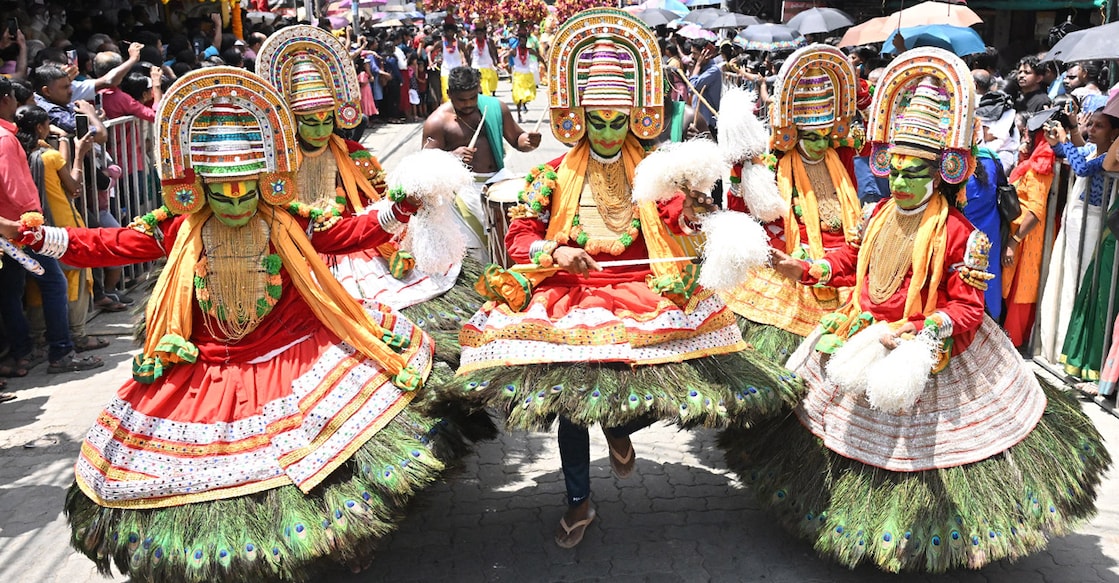'Athachamayam' parade today in Tripunithura: What's in store for the next nine days?

Mail This Article
Athachamayam, the grand cultural parade that heralds Kerala's Onam season, has kicked off the festive season in Ernakulam's Tripunithura in style. As always, various folk art forms like Theyyam, Thiruvathirakali, Kaikottikali Kummatti, Kolkali, Mayilattom, Karakattom, Kummi, Poykal, Ammankudam, Pulikkali, Kathakali, Aattakkavadi, Panchavadyam, Chendamelam and more are part of the procession attended by enthusiasts across ages. The parade adds glory to the erstwhile royal town filled with age-old buildings, temples, forts, palaces and more.
The origins of Athachamayam
Historians have many different versions of the origin story of Athachamayam. While some people say it commemorates the victory of the King of Kochi against the Zamorin of Kozhikode, others say it was a show of power, or it was merely a fest that celebrated the beginning of the harvest season, or that it was a ritualistic march all the way up to the Vamanamoorthy temple, situated in Thrikkakara, about 12 km away from Tripunithura. The procession commences with the representatives of the Tripunithura royal family hoisting the Atham flag. This is followed by the ceremonial parade around the streets of Tripunithura town, headed by a person dressed as Lord Mahabali. Representatives from various communities take part in the parade.
What's in it for tourists?
Tourists should watch the Athachamayam parade to taste Kerala’s vibrant cultural heritage and various traditional art forms. It also has colourful floats that can give you an idea of Kerala's unique local customs and festivities. The colourful costumes, cultural performances, markets, traditional music and dance shows also give you many photo opportunities and selfie moments if that's something you are looking forward to.

The next nine days
Each of the next nine days leading up to Onam has significance in the season. While people offer prayers to Lord Vishnu's incarnation Vamana on Atham Day and make the smallest floral carpet, aka pookkalam, of all, with a single round of flowers, the following days will see the number of circles and intricate designs, making it more vibrant. The second day, Chithira, is marked as the 'cleaning day' of the season. Chodhi, the third day, is for shopping and home decor and Vishakam, the fourth, is for the Onam feast's prior preparations. The fifth day, Anizham, is traditionally the day for boat races. Thriketta, the sixth day is for visiting your relatives and for exchanging Onam gifts. On the seventh day, Moolam is also set aside for sadya preparation, and on the eighth day, Pooradam sees the creation of clay idols of Vamana and Mahabali. The ninth day, Uthradam is for preparing traditional meals and the final day of Thiruvonam is believed to be the day King Mahabali visits Kerala. The grand Onam celebration with the elaborate sadya, games and prayers are set aside for this day.

